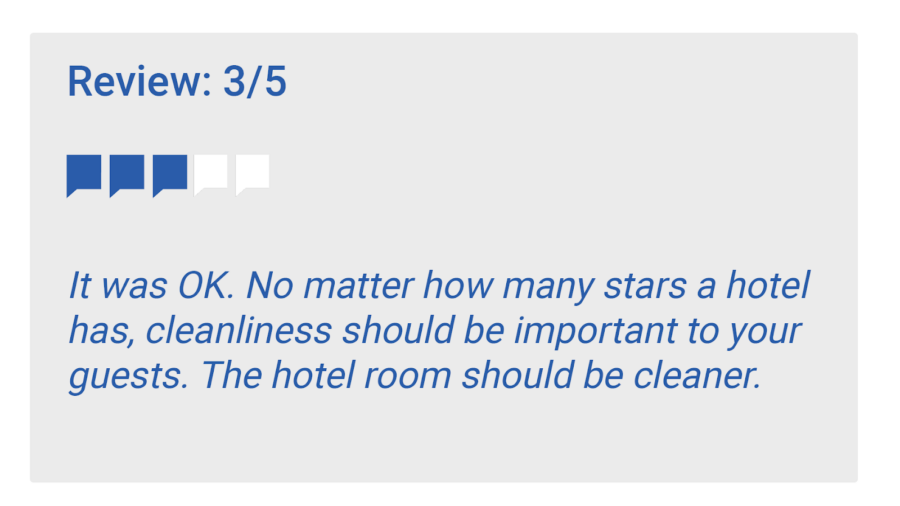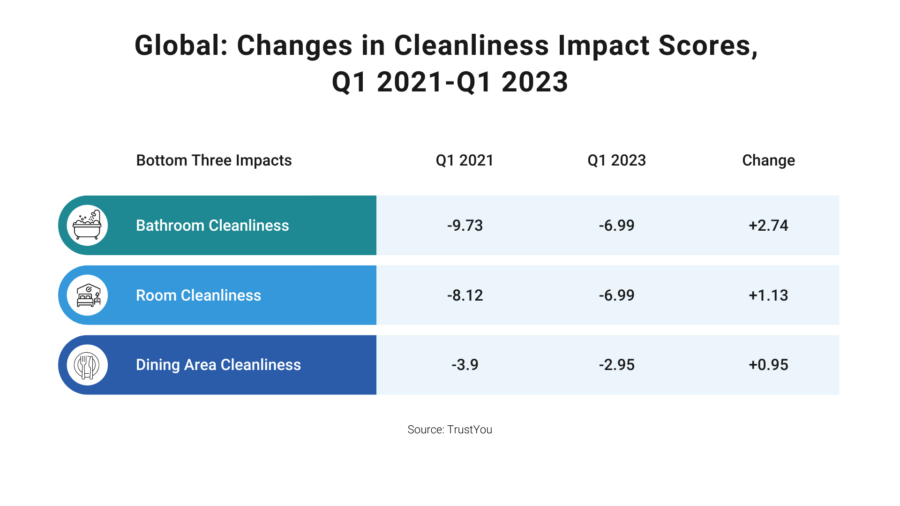Hotel Cleanliness Feedback: How Guest Reviews Impact Your Stay
Cleanliness is one of the most critical factors that travelers consider when choosing a hotel. It’s not just about a clean room but also about the overall hygiene of the hotel, including common areas, bathrooms, dining spaces, and even the hotel’s exterior. In this article, we will explore the significance of hotel cleanliness feedback, how it impacts a guest’s experience, and why maintaining high cleanliness standards is essential for a hotel’s success.
Why Hotel Cleanliness Matters
Cleanliness directly affects the guest experience. A hotel that offers a clean environment creates a sense of comfort and safety, which is crucial for customer satisfaction. According to studies, 87% of travelers consider cleanliness the most important factor when reading hotel reviews.

Guests often link cleanliness to professionalism and the overall quality of service. If a hotel appears dirty or unkempt, it can leave a negative impression, even if the rest of the services are up to par. In fact, cleanliness plays a significant role in shaping a hotel’s reputation. Positive cleanliness feedback can turn occasional guests into loyal customers, while negative feedback can tarnish a hotel’s image and impact future bookings.
Key Areas of Cleanliness That Guests Review
When guests leave feedback regarding cleanliness, they are often referring to several key areas that contribute to their overall perception. These areas include:
1. Guest Rooms
The cleanliness of a guest room is typically the first thing people notice. Fresh linens, dust-free surfaces, and clean floors are essential for a positive review. Dirty bathrooms, stained sheets, or unpleasant odors can quickly lead to dissatisfaction, regardless of the hotel’s star rating.
2. Public Spaces
From the lobby to the hallways and elevators, the cleanliness of public spaces plays a crucial role in guest impressions. Clean, well-maintained public areas suggest that the hotel cares about its guests’ comfort and well-being.
3. Bathrooms
Bathrooms are one of the most significant areas of concern for guests. Dirty or poorly maintained bathrooms are often mentioned in negative reviews. Clean towels, well-kept toiletries, and a hygienic bathroom environment are vital.
4. Dining Areas
For hotels with on-site dining options, the cleanliness of restaurant areas, buffets, or cafes is a major factor in guest satisfaction. Dirty tables, sticky floors, or uncleaned food trays can easily overshadow the food quality.
5. Exterior and Surrounding Areas
Guests may also assess the cleanliness of the hotel’s exterior and surrounding areas. A well-maintained entrance, parking lot, and garden create a welcoming atmosphere for guests and signal that the hotel values cleanliness throughout the entire property.
How Hotel Cleanliness Feedback Affects Bookings
1. Online Reviews Influence Guest Decisions
In today’s digital age, most travelers rely on online reviews before booking a hotel. Sites like TripAdvisor, Booking.com, and Google Reviews allow guests to leave feedback on their stay, including cleanliness. Positive reviews about cleanliness can help boost a hotel’s reputation, while negative comments can deter potential guests.
When guests notice consistent mentions of clean rooms or a spotless environment, they are more likely to book the hotel. Conversely, repeated complaints about unclean rooms, bathrooms, or common areas can lead to lost business.
2. Trust and Credibility
Hotels that prioritize cleanliness and receive consistent positive feedback build trust and credibility with their customers. Guests are more likely to book a hotel that has positive cleanliness ratings because they feel confident in the quality of their stay. This trust is essential for repeat business and word-of-mouth referrals.
3. Impact on Pricing and Reputation
Hotels with high cleanliness scores may even be able to justify higher room rates. Guests are willing to pay a premium for a clean, well-maintained hotel. However, hotels with poor cleanliness feedback may need to lower their rates to attract bookings or invest in improvements to avoid losing business.

How Hotels Can Improve Their Cleanliness Feedback
1. Training Staff
Hotel staff should be properly trained in cleanliness protocols and the importance of maintaining high hygiene standards. This includes training housekeeping staff to ensure that rooms are cleaned to a high standard and encouraging them to pay attention to detail.
2. Regular Deep Cleaning
Routine cleaning is necessary, but regular deep cleaning should also be part of a hotel’s maintenance schedule. Carpets, drapes, and upholstery should be cleaned periodically, and common areas should be sanitized to prevent the spread of germs.
3. Responding to Negative Feedback
If a guest mentions cleanliness issues in their review, hotel management should respond promptly. Apologizing and addressing the issue shows potential customers that the hotel cares about guest concerns and is committed to improving.
4. Using Guest Feedback for Improvement
Hotel management should actively monitor and review cleanliness feedback from guests. Guest surveys and online reviews can provide valuable insights into areas that need attention. Implementing changes based on feedback shows a commitment to continuous improvement.
5. Using Technology for Efficiency
Investing in technology, such as cleaning management software, can help streamline operations and ensure that cleaning tasks are tracked and completed on time. It can also help ensure that cleaning schedules are maintained consistently.
The Role of Cleanliness in Hotel Loyalty
Hotels that consistently maintain high cleanliness standards are more likely to retain guests and encourage repeat visits. Loyal guests value cleanliness and often make their booking decisions based on their past experiences. By prioritizing cleanliness, hotels not only enhance their immediate reputation but also foster customer loyalty in the long term.
Cleanliness Trends in the Hotel Industry
With the COVID-19 pandemic, the importance of cleanliness in hotels has never been more apparent. Guests now expect hotels to maintain even higher cleanliness standards than before. This has led to the adoption of new cleaning technologies, such as disinfecting robots, and an increased emphasis on contactless check-ins and sanitization stations.
Enhanced Hygiene Measures
Hotels are now implementing enhanced cleaning measures, such as:
-
Frequent sanitization of high-touch areas like door handles, elevator buttons, and light switches.
-
Provision of sanitizers in guest rooms and public spaces.
-
Upgraded air filtration systems to ensure guest rooms and public areas have fresh, clean air.

FAQs About Hotel Cleanliness Feedback
1. What should I do if I find a cleanliness issue in my hotel room?
If you encounter cleanliness issues during your stay, it’s important to report them to the hotel staff immediately. Most hotels will offer to address the issue by cleaning the room again or providing a different room.
2. How can I be sure a hotel is clean?
Reading recent guest reviews is a great way to check the cleanliness of a hotel. Look for comments about the quality of housekeeping, room cleanliness, and the upkeep of public areas.
3. Can poor cleanliness impact a hotel’s reputation?
Yes, poor cleanliness can significantly damage a hotel’s reputation. Negative reviews about cleanliness can dissuade future guests and even lead to lower bookings, which can affect a hotel’s overall revenue.
4. How do hotels maintain high cleanliness standards?
Hotels can maintain high cleanliness standards through regular staff training, detailed cleaning protocols, and consistent use of high-quality cleaning products. Regular inspections and guest feedback are also vital for identifying areas that require attention.
Conclusion
Hotel cleanliness feedback plays a crucial role in shaping a guest’s experience and impacting the success of a hotel. With cleanliness being one of the primary concerns for travelers, hotels must prioritize maintaining high hygiene standards across all areas of the property. By doing so, they can build a strong reputation, attract more guests, and foster loyalty among repeat visitors. Cleanliness is not just a basic requirement; it’s a key driver of guest satisfaction and hotel success.

